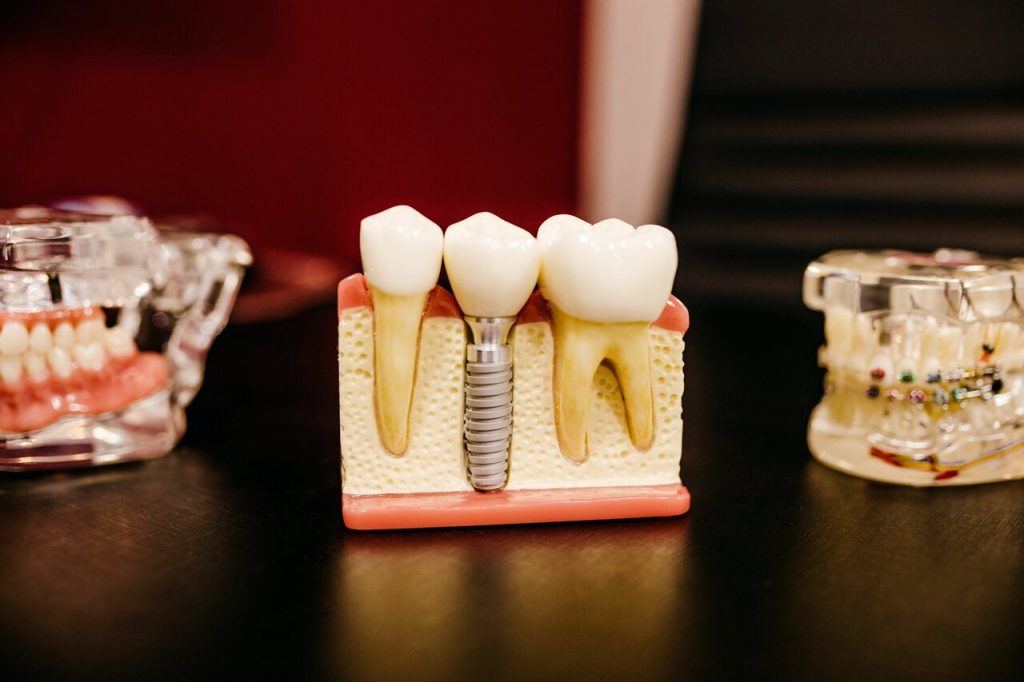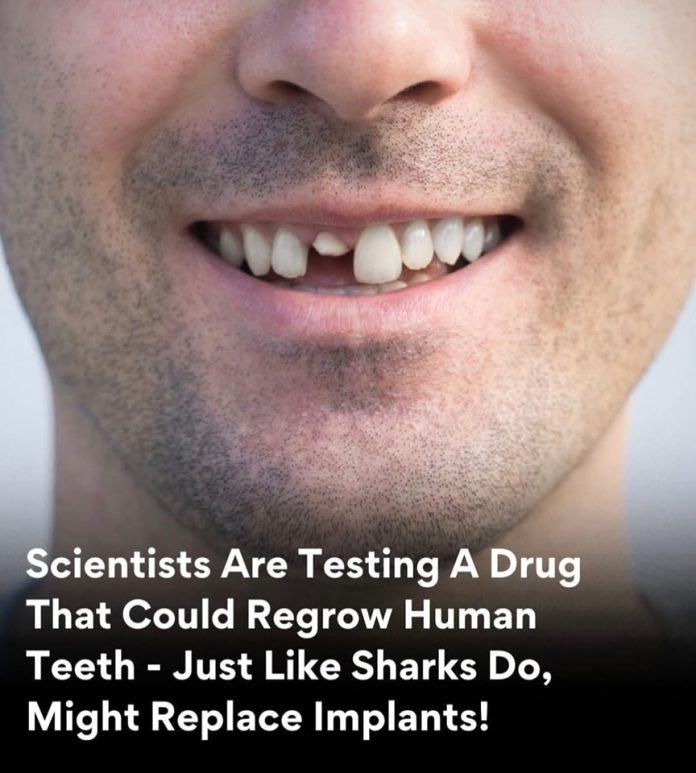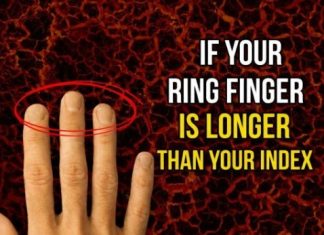Imagine a world where a lost tooth is no longer a permanent problem. For millions of people who suffer from tooth loss due to accidents, decay, or aging, the future may hold a groundbreaking solution: regrowing teeth naturally, just like sharks do. Scientists are currently testing a revolutionary drug that could stimulate the human body to regrow its own teeth—potentially eliminating the need for dentures, bridges, or dental implants.
How Tooth Regeneration Works
In nature, several animals have the ability to regenerate lost body parts, and among them, sharks are famous for continuously growing new teeth throughout their lives. A human typically only has two sets of teeth in their lifetime—baby teeth and adult teeth. Once an adult tooth is lost, there is no natural replacement. This new research aims to change that.

Scientists have discovered that the genetic coding responsible for tooth development still exists in the human body, but remains dormant after adulthood. The innovative drug currently being tested is designed to reactivate these dormant genes, encouraging the body to grow a brand-new tooth in place of the lost one. In early animal trials, the results have been extremely promising.
A Game Changer for Dental Care
If successful in human trials, this medication could be a game changer for modern dentistry. Currently, dental implants are the most advanced method for replacing lost teeth, but they come with drawbacks: high cost, invasive surgery, the risk of infection, and the possibility of failure or rejection by the body. Regrowing teeth naturally would eliminate many of these risks and provide a permanent, biologically compatible solution.
Unlike artificial replacements, a regrown tooth would be integrated naturally with the jawbone, have proper nerve endings, and function just like the original. This could drastically improve the quality of life for millions of patients and revolutionize dental practices worldwide.
Who Could Benefit?
Tooth loss is more common than many think. People lose teeth due to accidents, gum disease, tooth decay, or age-related issues. Many elderly individuals rely on dentures, which can be uncomfortable and limiting. Children who lose adult teeth prematurely due to trauma could also benefit greatly from this treatment.
This therapy could also be life-changing for people born with congenital conditions such as hypodontia (missing teeth from birth), offering a future where they can grow the teeth they never had.

What’s Next in Development?
The drug is still in the research and trial phase, and more testing is needed to ensure its safety and effectiveness in humans. Scientists are focusing on understanding how to control the timing, number, and alignment of regrown teeth, ensuring the process is predictable and tailored to individual patients.
Clinical trials in humans are expected to begin within the next year or two. If those trials go well, the treatment could become commercially available within the next decade.
The idea of humans regrowing teeth like sharks may have once sounded like science fiction, but thanks to remarkable advances in medical science, it’s becoming a potential reality. This groundbreaking development not only offers hope for millions struggling with dental issues but also paves the way for a future where lost teeth are no longer permanent.
The drug being tested could redefine how we view dental care—not just treating tooth loss, but reversing it. If successful, it may soon be possible to throw away the dentures and say goodbye to implants—because your body will do what nature intended: grow new teeth.

















